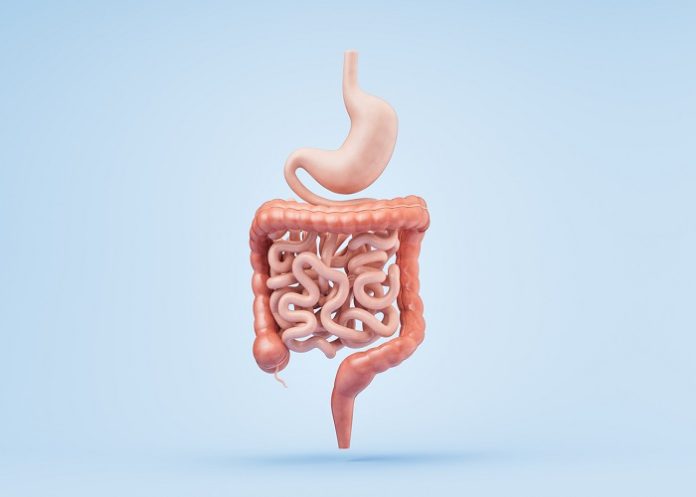There is an ongoing interest in the relationship between diet and health, and this is particularly contentious in diseases of the gut such as inflammatory bowel disease (IBD).
But, writes JP Wright in a letter to the SA Medical Journal, while there is no question of the physical effect of food on the gastrointestinal tract, to expect nutrition to control the immune system, avoid strictures and prevent colonic cancer, is far-fetched.
Some feel that they are experts, and have strong beliefs on the subject. Processed food, wheat and parasites are usually the go-to culprits. Patients and their families are less sure, but are willing to take the free advice that diet has caused their problems.
In spite of this minefield, we need to understand the available data to reassure patients and their families that IBD (Crohn’s disease and/or ulcerative colitis) is medically manageable. Diet can cause symptoms, but there is no evidence that diet causes flares of disease, remission or long-term complications, or prevents colon cancer.
Simply put, IBD is not a dietary disease: it is an autoimmune disease just like rheumatoid arthritis. Treatment therefore needs to be aimed at the immune system.
Other treatment is simply palliative. Often critically important, but in the end, palliative.
Diet is, however, important. Nuts cause pain and bowel obstruction in Crohn’s disease patients, while lactose causes diarrhoea in those with lactose intolerance.
However, the real advance was the observation that stopping oral intake and starting total parenteral nutrition invariably improved symptoms. This phase of bowel rest led to trials of enteral feeding, which had a similar temporary benefit. The explanation of this was a reduction in the antigen load and a reduction in the autoimmune storm that was thought to be central to these diseases.
At the time, the only effective therapy was corticosteroids, which have horrendous side-effects, particularly in children. Because of this, the low-antigen diet became standard treatment for children, but adults were less compliant and would rather have a course of prednisone.
In the end, these dietary modalities did not treat the underlying pathological process.
The advent of specific therapy such as the anti-tumour necrosis factor (TNF) drugs (e.g, infliximab and adalumimab) meant that dietary manipulation, like sunshine for tuberculosis, was relegated to the back burner.
In spite of these advances, some patients and their medical advisers like the idea of dietary manipulation. It puts them in charge of their disease. It is safe, and has a certain holistic appeal against modern food production, and evil ‘Big Pharma’ who are driving this therapeutic revolution.
The preferred diet, as above, excludes the ubiquitous common enemies of processed food and gluten. This is despite the very processed nature of the helpful enteral feeds.
There is no good evidence that enteral or parenteral feeding are better than standard medical therapy such as anti-TNFs in inducing remission in IBD.
What is, however, in no doubt, is the physical effect of food on the gastrointestinal tract.
There are three aspects to this: the effect on the microbiome, the effect on absorption of nutrients and the obstructive strictures of Crohn’s disease.
First, there is no convincing evidence that IBD is caused by defects in the microbiome. This is the term used to summarise the totality of the inhabitants of the colon. This balance of bacteria has been shown to be different in the subtypes of IBD, but their aetiological significance needs further study.
As <70% of the microbiome has been properly identified, it is arrogant for us to talk of good and bad intestinal bacteria beyond recognising that typhoid is bad news.
Second, the absorption of nutrients is affected by how we ingest our food. Liquified and enteral diets facilitate efficient absorption and are a useful part of our armamentarium. This can be short term or long term, but they are essentially used to assist nutrition rather than affect the immune system.
Third, the physical nature of what is ingested can lead to hard pieces blocking narrow sections of the bowel. Nuts, coconut and raisins are the classic troublemakers, but simply highlight the need for active medication or, in some cases, surgical release. This amplifies the need for the early use and adequate dosage of modern anti-inflammatory medication.
The old regimen of routine mesalamine, corticosteroids, immunosuppression and surgery are unacceptable relics of the 1970s.
In summary, to get and keep patients adequately fed, the dietician may play a very useful role in sick patients, but to expect nutrition to control the deranged immune system, avoid strictures and prevent colonic cancer, is a far-fetched pious hope, and hope is never a strategy.
J P Wright – Kingsbury Hospital, Cape Town
See more from MedicalBrief archives:
Landmark finding on cause of inflammatory bowel disease and immune disorders
A review article on the clinical use of probiotics
High-fat diet with antibiotic use linked to gut inflammation

